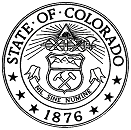![]() The information on this page is archived and provided for reference purposes only. It may be outdated or no longer maintained.
The information on this page is archived and provided for reference purposes only. It may be outdated or no longer maintained.
Secretary of State, Attorney General ask Coloradans to beware of scam artists exploiting Midwest tornado victims
Denver, May 31, 2011 –Colorado Secretary of State Scott Gessler and Colorado Attorney General John Suthers warned Coloradans today on how to avoid charity scams in the wake of the recent Midwest storms. Both officials urged Coloradans to be wary of unregistered charities or other entities looking to use the deadly storms to scam consumers.
“Coloradans will no doubt want to help—we want to make sure their help makes it to the right place,” Gessler said. “Anyone considering donating should check the charity on my office’s website, to be sure the money is going to an established, legitimate charity. Our website contains charity reports that can shed light on how the charity is managed and how your donation will be spent.”
“We know Coloradans will be reaching out with generous donations of their time and money to help our neighbors in the heartland recover from these devastating tornadoes, but they still should take some simple precautions to avoid becoming victims of fraud,” Suthers said. “Unfortunately, scam artists often use disasters to take advantage of the generosity of those who simply want to help.”
Suthers and Gessler said Coloradans can take several simple steps to make sure their charitable contributions are helping disaster victims and not lining the pockets of scam artists:
-
- Visit www.checkthecharity.com or the Colorado Secretary of State’s Web site (www.sos.state.co.us) to make sure a charity soliciting contributions is registered with the state.
-
- If solicited for contributions by phone, ask for the solicitor’s registration number and the registration number of the charity he or she is representing. Certain well-known charities such as the Red Cross will never solicit donations over the phone.
-
- Ask your tax advisor or the Internal Revenue Service if your donation will be tax deductible. The fact that a charity has a tax identification number does not necessarily mean your contribution is tax-deductible.
-
- Ask the solicitor how much or what percentage of the donation will go to the charity.
-
- Be wary if the charity does not want to provide information about its programs and finances. Reputable charities will gladly provide the information requested.
-
- Watch out for charities with names that sound similar to well-known organizations. Sometimes these sound-alike names are simply intended to confuse donors.
-
- Do not make cash donations. Donate with a check made payable to the charity.
-
- If solicited in person, ask to see identification for both the solicitor and the charity.
-
- Beware of unsolicited e-mail. There already have been reports of e-mails that purport to be solicitations from the Red Cross. The e-mails have links embedded in them that will take you to a fake Red Cross Web site. Further, such unsolicited e-mail may spread computer viruses. Do not respond to any e-mail soliciting donations from any organization. Instead, go directly to the organization’s Web site or call to make donations.
-
- If you believe you have been solicited by a fraudulent charity, please file a complaint with the Secretary of State or the Attorney General via www.checkthecharity.com.
- If you feel uncomfortable donating simply, say no.




 Menu
Menu  Search
Search 
